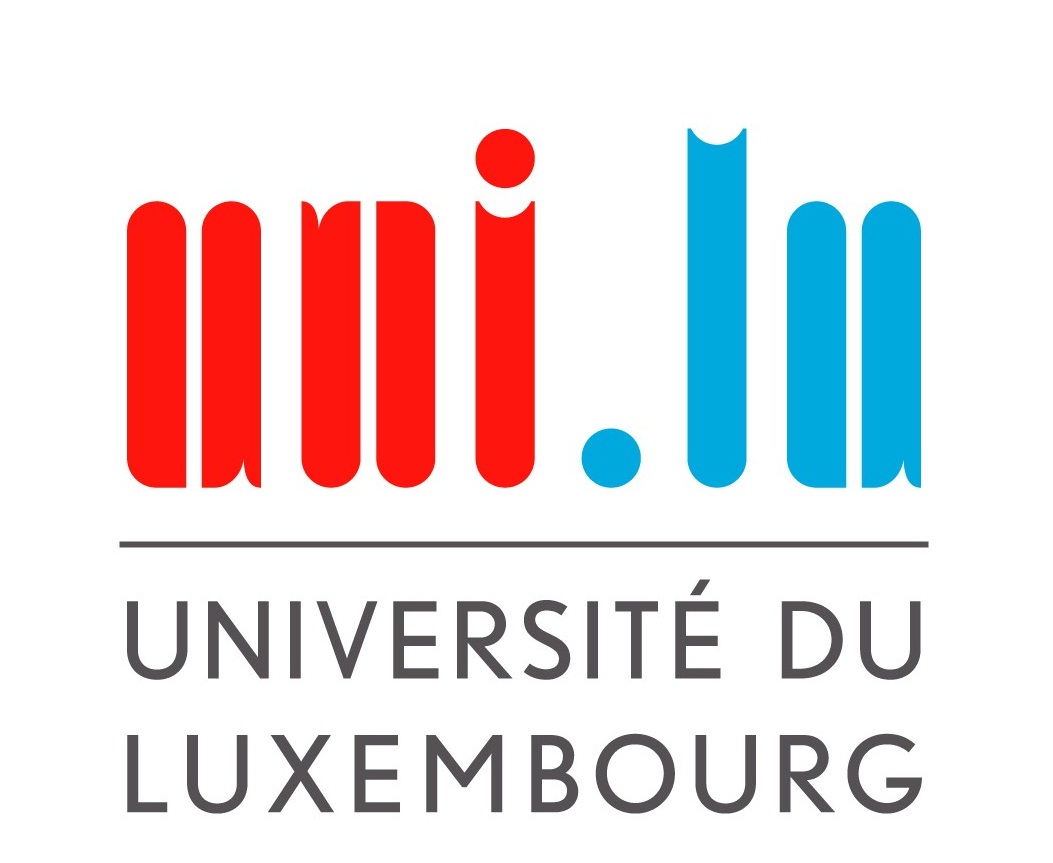

This workshop is funded by the FNR OPEN grant APOGee
Programme
Thursday 19th May 2022
16:00-16:50: Yimin Xiao
16:50-17:40: Laurent Loosveldt
17:40-18:30: Stéphane Jaffard
Friday 20th May 2022
10:00-10:50: Céline Esser
10:50-11:40: Stéphane Seuret
14:00-...: Lara Daw's PhD defense
The presentations will take place in the room MNO 1.050
Lara Daw's PhD defense will take place in the room MSA 3.520
Abstracts
Céline Esser (University of Liège)
Counter examples to multifractal formalims
In this talk we will present several counter-examples to multifractal formalism based on wavelet leaders, and in particular homogeneous counter-examples. We will also focus on lacunary wavelet series defined on symetric and asymetric Cantor sets, for which a complete analysis of the singularity spectrum and of the large deviation spectrum will be given. This talk is based on a joint work with Béatrice Vedel
Stéphane Jaffard (University Paris-Est Créteil)
Multivariate Multifractal Analysis: Theoretical foundations and applications to marathon runners physiological data
Multifractal analysis quantifies the fluctuations of the pointeuses regularity of functions through the estimation of their ”multifractal spectrum” which encapsulates the fractional dimensions of their singularity sets. Wavelet techniques supply robust tools in order to perform multifractal analysis, and they became a standard signal/image processing method for classification or model selection. In view of many modern real-world applications that rely on the joint (multivariate) analysis of collections of signals or images, the need for extensions to multivariate settings became a major challenge. We will describe the theoretical foundations of multivariate multifractal analysis, which proposes to estimate the multivariate multifractal spectrum of several signals as a new way to reveal the correlations between their singularity sets. We will study the limitations of this extension and mention several open problems that this approach motivates. These results will be illustrated by examples worked out on physiological data recorded on marathon runners
Laurent Loosveldt (University of Luxembourg)
Generalized Regularity and Stochastic Processes
During this talk, we first present the generalized pointwise Hölder spaces and motivate their introduction. Then, we discuss the efficiency of wavelet analysis to consider such spaces. Thanks to this, we show how relevant is our notion of generalized pointwise regularity when it comes to consider some important stochastic processes. Finally, we close the circle by proving some genericity results concerning Hölder spaces with the help of random wavelet series.
Stéphane Seuret (University Paris-Est Créteil)
Multifractality and (additive) stochastic processes
In this talk, we review some more or less recent results on the regularity and multifractal properties of various additive stochastic processes, and propose some open questions.
Yimin Xiao (Michigan State University)
Hitting probabilities of Gaussian random fields and collision of
eigenvalues of random matrices
Let X= {X(t), t ∊ ℝ^N} be a centered Gaussian random field with values in ℝ^d satisfying certain
conditions, and F ⊂ ℝ^d be a Borel set. We provide a sufficient condition for F to
be polar for X, i.e. ℙ( X(t) ∊ F for some t ∊ ℝ^N \{0}) = 0.
Our new condition is related to the upper Minkowski dimension of F and
improves significantly the main result in Dalang et al (2017),
where the case of F being a singleton was considered.
We provide a variety of examples of Gaussian random field for which our result is applicable.
Moreover, by using our main theorem, we solve a problem on the existence of collisions of the eigenvalues of
random matrices with Gaussian random field entries that was left open in Jaramillo and Nualart
(2020) and Song et al (2021).
This talk is mainly based on a joint paper with Cheuk-Yin Lee, Jian Song, and Wangjun Yuan.
Generalized Regularity and Stochastic Processes
During this talk, we first present the generalized pointwise Hölder spaces and motivate their introduction. Then, we discuss the efficiency of wavelet analysis to consider such spaces. Thanks to this, we show how relevant is our notion of generalized pointwise regularity when it comes to consider some important stochastic processes. Finally, we close the circle by proving some genericity results concerning Hölder spaces with the help of random wavelet series.
Stéphane Seuret (University Paris-Est Créteil)
Multifractality and (additive) stochastic processes
In this talk, we review some more or less recent results on the regularity and multifractal properties of various additive stochastic processes, and propose some open questions.
Yimin Xiao (Michigan State University)
Hitting probabilities of Gaussian random fields and collision of
eigenvalues of random matrices
Let X= {X(t), t ∊ ℝ^N} be a centered Gaussian random field with values in ℝ^d satisfying certain
conditions, and F ⊂ ℝ^d be a Borel set. We provide a sufficient condition for F to
be polar for X, i.e. ℙ( X(t) ∊ F for some t ∊ ℝ^N \{0}) = 0.
Our new condition is related to the upper Minkowski dimension of F and
improves significantly the main result in Dalang et al (2017),
where the case of F being a singleton was considered.
We provide a variety of examples of Gaussian random field for which our result is applicable.
Moreover, by using our main theorem, we solve a problem on the existence of collisions of the eigenvalues of
random matrices with Gaussian random field entries that was left open in Jaramillo and Nualart
(2020) and Song et al (2021).
This talk is mainly based on a joint paper with Cheuk-Yin Lee, Jian Song, and Wangjun Yuan.
Contact
Organisers: Laurent Loosveldt and Ivan Nourdin